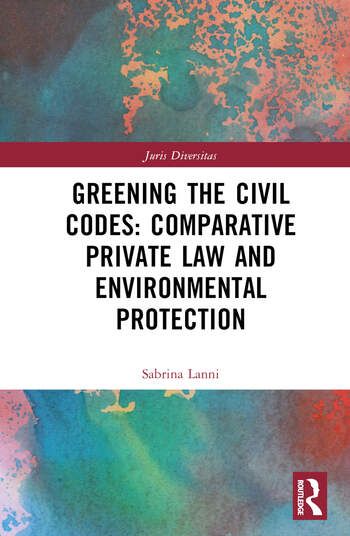
This book examines the greening of civil codes from a comparative perspective. It takes into account the increasing requirements of supranational rules, which favor measures to reduce global warming and its negative environmental impacts, discusses the necessity to expand distributive justice given the current ecological emergency, and reflects on which private law legal tools may potentially be employed to defend nature’s interests. The workfills a gap in the growing literature on developing rights of nature and ecosystem rights in transnational law. While the focus is on the environmental issues pertaining to the new civil codes and new projects of civil codes, the book promotes interdisciplinary research applicable to a range of environmental and natural resources focused courses across the social sciences, especially those related to comparative law systems, legal anthropology, legal traditions in the world, political science and international relations.